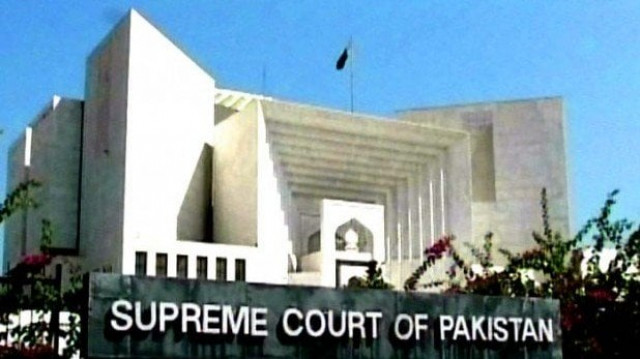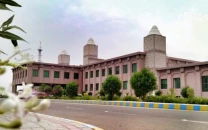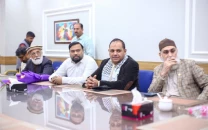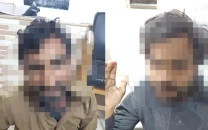Parliament endorsed dictators’ acts: Ramday
The judiciary endorsed acts of dictators past temporarily;the parliament assigned those steps permanent protection, Ramday.

Parliament endorsed dictators’ acts: Ramday
Pirzada was presenting his formulations regarding the sanctity of the constitution before a 17-member bench headed by Chief Justice Iftikhar Chaudhry. “The 1973 constitution was passed unanimously therefore no dictator had the courage to abrogate it though it was put in abeyance by the General Ziaul Haq and General Pervez Musharraf,” said Pirzada.
Here, Ramday asked him whether political parties had not endorsed martial law regimes through the eighth and the 17th amendments to the constitution. “But the judiciary endorsed the acts of dictators in the past,” countered Pirzada, prompting Ramday to hit back with the point about the parliament having provided permanent cover to acts of dictators.
The crux of Pirzada’s argument was that the present parliament is not authorised to alter the basic structure of the constitution. “The basic structure is an important part of the constitution and only the constituent assembly can bring changes in the basic structure; the present assembly is just legislative in nature,” he contended. “If the present assembly had the right to amend the basic structure, it can theoretically also repeal the Objectives Resolution, which was made part of the constitution by a dictator.”
Pirzada also voiced objections regarding judicial review of constitutional amendments. The lawyer who is widely credited as the architect of the 1973 constitution insisted that the apex court had the powers of review, even though these powers were barred through the insertion of article 239 in the constitution through the eighth amendment. As such, he contended, the present parliament should not have retained this provision. Especially since, under article 184(3) of the constitution, the apex court has the power to resolve disputes between the federation and provinces, concluded the lawyer.
Talking about the new procedure for appointing judges of the superior courts, Pirzada said it was an attempt to politicise the courts.
He also took issue with the provision that now forces lawmakers to vote along party lines has resulted in the transfer of all powers to the party chief. “Under article 218 and 270 of the constitution, the state uses its authority through elected members,” he said. But with this new provision, unelected party heads can control the parliament. Even someone who has been disqualified from contesting elections, someone who’s sitting abroad, can control the parliament and even can show the door to the prime minister.”
To illustrate his point, Pirzada cited the example of PPP president Makhdoom Amin Fahim. “Being the party head, he should have the power to run the party affairs but he is powerless,” stated Pirzada.
Before presenting his arguments, Pirzada had objected to a request by advocate Salman Akram Raja for being impleaded in his petition. Raja had wanted to be included as a respondent in the petition since, he claimed, he wanted to defend the amendment on behalf of civil society. “The federation is the real respondent in my petition; when the federation has not yet submitted its reply, how can anyone else be allowed to become a party?” asked Pirzada.
At this, the chief justice issued notices to the federation and the Attorney General of Pakistan to submit their reply to Raja’s petition.
Before Pirzada, petitioner Habib Wahabul Khairi had voiced his objections to the amendment, saying various clauses ran counter to Islamic teachings. Khairi also challenged the abolition of the clause regarding intra-party elections and said it would promote dictatorship in political parties and hamper the holding of transparent elections.
Pirzada will resume his argument before the court today (Wednesday).
Published in The Express Tribune, July 14th, 2010.



















COMMENTS
Comments are moderated and generally will be posted if they are on-topic and not abusive.
For more information, please see our Comments FAQ